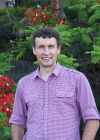A clock is a machine and as such is constrained by the laws of thermodynamics. It matters not if it operates by quantum or classical principles; thermodynamics provides the fundamental constraints on clocks and the accuracy of time keeping.
Clocks may be periodic, e.g. pendulum clocks, quartz clocks, atomic clocks; or they may be aperiodic e.g. water clocks, radio-carbon dating, Mach's thermal clock. In every case, a clock is driven by increasing its free energy and is necessarily a dissipative system. Usually the free energy is increased by doing work on the clock using a falling weight or a battery (quartz clock). In contrast, our project will consider how the free energy of the clock may be increased by reducing the entropy by a quantum limited measurement. We call this an information driven clock as the working system of the clock is driven away from thermal equilibrium by extracting information.
To realize this clock, we choose superconducting quantum circuits with an exquisite control of their quantum degrees of freedom and ability to characterize our system at every step by quantum state tomography. The specific scheme we propose will consist of a superconducting qubit coupled to a resonator which enable us to change the free energy either by increasing the internal energy though work or decreasing the entropy by extracting information through quantum measurement of a qubit state. This system will allow us to observe the transition from an information driven clock to a work driven clock in a single physical implementation with use of external driving, quantum limited amplification and feedback operations.
Using this clock, we will demonstrate the equivalence of information and fuel for a quantum clock, formulate the thermodynamic constraints on time keeping and demonstrate the theoretical limits to the accuracy of such clocks arising from the quantum limits to information extraction.





